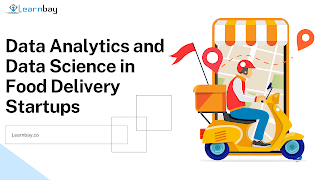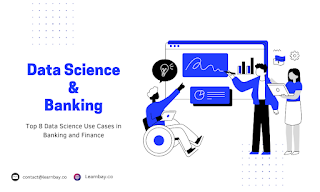All You Need To Know About Artificial Intelligence (AI) - Future Of AI
Artificial Intelligence. As captivating as it sounds, it also has intriguing concepts and applications. Artificial Intelligence is a field that has a long history that is still evolving in today's technological era. It has the potential to transform every business, and its capabilities are said to revolutionize our daily lives. This technology is far older than we would imagine. In simple terms, Artificial Intelligence refers to an intelligent or smart entity created by humans.
In this blog, you'll get an overview of modern Artificial intelligence, its types, and its applications. Along the way, we hope to excite you about the vast possibilities in the field of AI, which continues to expand human capability beyond our imaginations.
Many people are stumped about how AI can add value to growing any business. Given the buzz and rush to wrap the AI legacy around any new technology, It's natural to ask the basic question, What exactly is AI?
What is Artificial Intelligence (AI)?
Well, Let's start with the practical definition, "AI is a technology that attempts to mimic a broader aspect of human intelligence." For example, Consider a calculator. It can perform simple arithmetics. The majority of people, including yourself, would agree that this ability is unique to humans. However, the reality is a calculator is built on Artificial Intelligence itself. I bet you also didn't know this fact, right?
Artificial Intelligence is a term that refers to the ability of machines to perform tasks that require intelligence displayed by humans. This definition is often related to the founders of AI, Marvin Minsky and John McCarthy, from the 1950s.
How Does Artificial Intelligence work?
Building an AI system is a detailed process that involves reverse-engineering human traits and capabilities into a machine and then using its computational power to outperform what we are capable of. Before that, do check out Learnbay’s artificial intelligence course in Bangalore, to master the AI techniques used in the real workplace.
To understand how AI actually works, let us dive deep into its sub-domains and understand how these can be applied to various fields of industry.
Machine Learning – ML trains a machine to make decisions based on past experiences. It recognizes the patterns and analyzes past data to derive meaning from reaching a possible conclusion without relying on the human experience. This automation, to conclude by analyzing data, saves businesses time and allows them to make better decisions.
Deep Learning is a subset of AI and ML techniques that teaches computers and devices how to function logically. It also trains the machine on how to process input layers to predict the outcome.
Neural Network – Neural network works similarly to human neural cells. Using algorithms, they detect hidden patterns and correlations in raw data, cluster and clarify and continuously learn and improve over time.
Natural Language Processing – NLP is the science of understanding human language by a machine. It aims to create a system that can understand the text and perform human tasks like translation, spelling, and checking. Once a machine understands what the user is trying to say, it responds accordingly.
Cognitive Computing – Cognitive computing algorithms help imitate the human brain by analyzing text/speech/images in the same way humans produce the desired result.
Computer Vision – Computer vision algorithms try to analyze an image by breaking it and studying various parts of the object. Consequently, helping machines learn from a set of images to make better output decisions based on previous observations.
Purpose of AI
The main purpose of AI is to improve computer functions related to human knowledge, such as reasoning, learning, and problem-solving.
In other words, AI enables machines to work efficiently and analyzes huge data in the blink of an eye, solving problems through supervised, unsupervised, or reinforcement learning.
The ability to make decisions is impossible without data. Data scientists are the ones who analyze past data and develop procedures that artificial intelligence systems can follow. To put it simply, we are surrounded by unexplored data. This is where AI might help us speed up the collection and analysis of data.
Philosophically speaking, AI has the potential to help humans live more productive lives free of hard labor and assist in managing the complex web of interconnected individuals, organizations, and nations for the world to function in a way that benefits all of humanity.
Types of Artificial Intelligence
AI cannot be classified into a single category, as different types of AI are designed to perform different tasks. AI can be classified into two types based on how it functions. Here's a detailed introduction to the first types of AI:
Artificial Narrow Intelligence (ANI):
ANI is the most common type of AI and is referred to as "weak AI". These AI systems are designed to perform a single task exceptionally well. This artificial intelligence is a simulation of human intelligence operating in a limited context.
Example: Siri, Alexa
Artificial General Intelligence (AGI):
AGI is also referred to as "Strong AI", the kind of AI system we see in sci-fi movies. AGI is a machine with general intelligence that, like humans, can be used to solve any problem. It can perform human-cognitive functions like language processing, reasoning, etc.
Example: Strong robots
Artificial Super Intelligence (ASI):
It is called hypothetical AI, which is regarded as the next logical step after AGI. ASI is the point where machines become self-aware enough to outperform human intelligence behavioral ability. With superintelligent, machines can think of possible interpretations that humans cannot.
Use Cases Of Ai In Everyday Life:
As you know, AI is driving change in every industry around the globe. As businesses are becoming more data-driven, the demand for AI technology grows. From speech recognition to medical imaging and improved supply chain management, AI provides organizations with the computing power, tools, and algorithms required for their growth.
AI can help businesses streamline their processes, complete tasks faster, eliminate human error, and much more. It can be a powerful tool for both large corporations that generate huge amounts of data and a startup that needs to handle customer calls more efficiently.
Below are some of the real-life use cases of AI:
Personal assistants, e.g. Siri and Alexa: This is the most common example of AI. These assistants use ML, NLP analysis, and algorithmic execution to determine what you want and deliver them to you.
Plagiarism checkers and tools: Plagiarism checker tools use AI technology to scan duplicate content. Additionally, it also helps in finding similarities in meaning and sentence formation.
Facial Detection and Recognition: Using virtual filters or unlocking our phones using face ID are two examples of AI that are now part of our daily lives.
Voice-to-text features: Artificial intelligence (AI) is used in speech-to-text technology to transcribe raw speech into structured written text automatically. It is widely useful in today's world.
Search recommendations algorithms: Have you noticed that they suggest similar topics when you search for a particular movie? This is nothing but due to AI. By tracking your online activity, these intelligent recommendation systems have learned your behavior and interests over time. The data collected is analyzed through ML, then predicts your preferences.
Google AI-powered predictions like Google Map: AI has vastly improved traveling. Instead of relying on printed maps and directions, we can use our phones to access Google Maps for easier traveling. Previously, only satellite-based GPS was available; however, artificial intelligence is now being incorporated to provide users with a much more enhanced experience.
Spam filters on emails: Each incoming email message is scanned by AI spam filters, which label any objectionable content. Its intelligent learning capabilities identify malware warning signs. If you find a message containing this malicious software in your inbox, it is immediately flagged, and you are warned not to open it.
Self-driving cars: AI has enabled us to build the futuristic cars we've always dreamt of. Yes, self-driving cars that drive on their own.
Future of AI:
So what does the future hold in terms of AI? AI language is said to be the next big thing in the near future. It is, in fact, already on its way. Have you ever wondered why machines, rather than humans, are calling you these days? You can also imagine interacting with an expert system or having conversations with two different languages being translated in real time. We can also expect driverless cars in the next 20 years.
Bottom Line
To summarize, Artificial Intelligence is a rapidly growing technology in the modern world. It covers all technical fields in order to simplify and reduce the human burden resulting in better decisions.
I hope you found this blog helpful in grasping knowledge about the concepts of Artificial Intelligence. Having deep knowledge of Artificial Intelligence can lead to greater career advancement, and of course, opting for certification would be a plus point. You can check out Learnbay's Data Science course in Bangalore, which delivers the best hands-on training to its enthusiastic learners. In addition to understanding AI tools and concepts, this course will help you get exposure to real-world problems by working on projects. Go ahead and jumpstart your AI career today.



Comments
Post a Comment